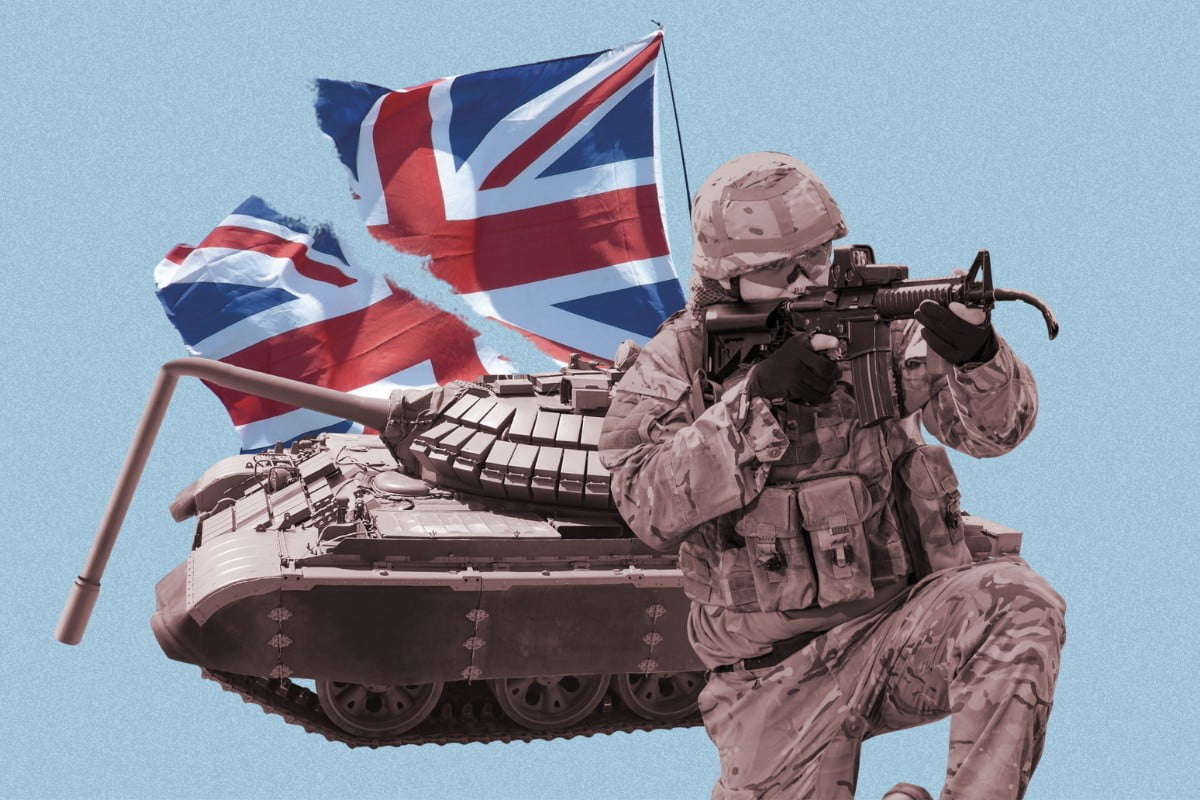Boris Johnson’s 2021 defence paper laid out the biggest increase in military spending since the end of the Cold War.
British imperialism was to be armed to the teeth with a Christmas list of shiny new death machines, transforming it into a ‘global heavyweight’ with a cyber, space, and AI programme.
These delusional ambitions have since been brought down to earth by the Ukraine war.
The 2023 ‘refresh’ of this defence paper, which was supposed to make a “root and branch” change, has done nothing of the sort. It is the old plan, only carried out with “speed”, “lethality”, and “cunning”.
Though the new report redirects some cash to stem the bleeding, British imperialism remains militarily incompetent, unable to reliably assert its interests on a world stage.
The paper has also been overshadowed by the resignation of its architect, Defence Minister Ben Wallace, who joins 47 other Tory rats ditching the sinking Sunak regime.
Left adrift without a clear plan, the crisis-ridden military is yet another sizzling stick of dynamite which will be passed to the incoming government, leaving Britain vulnerable in (as the paper puts it) “a more contested and volatile world”.
Long-term decline
The crisis in the Armed Forces is part of a long process of decline for British imperialism, reflecting the special crisis of British capitalism.
Long ago, British imperialism held a quarter of the Earth’s surface in submission. But over the last century, as it shrank dramatically in terms of its relative economic weight, Britain found itself overstretched. Imperial commitments and military infrastructure inherited from the past became too costly to maintain.
As a result, the ever-leaner Empire pawned off its armaments, relying instead on nuclear deterrents like the costly Trident programme. And through its membership of NATO, Britain substituted sovereignty with a policy of piggybacking on US imperialism.
As the economic noose has tightened on frail Britannia, the military has suffered death by a thousand cuts. Projects have been scrapped, troops have been cut, and services have been outsourced to private bandits.
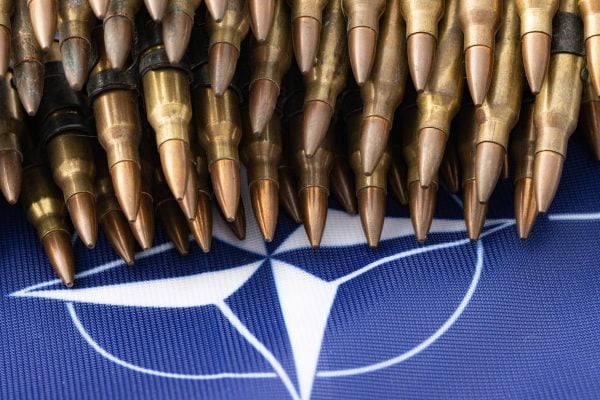
Privatisation has had a disastrous impact upon the Armed Forces. In 1996, for example, the MoD sold off all of its accommodation for service members and their families. The housing was so shoddily maintained that it then had to be renationalised.
This shrivelling up seemed inconsequential, however, so long as Britain could hide behind the unrivalled playground bully of US imperialism. Its occupations of Iraq and Afghanistan also created the illusion that war would henceforth be fought against poorly-armed guerrillas.
But with the return of conventional warfare in Ukraine, Britain has been caught with its trousers down.
Crisis-ridden
Today the British military is widely recognised as a crisis-ridden embarrassment.
Compared to 1990, Britain now has half the troops and only a sixth of the tanks it once did. The British Army is at its smallest since the Napoleonic Wars, with just enough to cobble together a single “under-strength division”. This is dwarfed by the four divisions of the Polish Army, and the five of the Turkish Army.
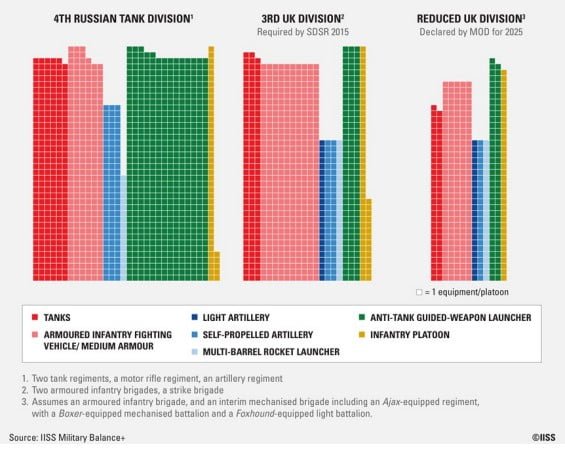
The Royal Navy is “pathetically small” in the words of one former ‘Sea Lord’, and would struggle to defend the seas surrounding Britain, let alone the last few scraps of its Empire. To intervene on the same scale as in the Falklands War, Britain would have to commit its entire Navy.
It is also estimated that the UK’s ammo stocks would last for only eight days in a “high-intensity conflict”.
The defence paper has stuck a £2.5 billion plaster on this particular wound. But this will be paid for by cuts elsewhere, inflicting brutal austerity on workers in order to waste more on warmongering.
Delusions of grandeur
This sorry state is in spite of the fact that Britain is the world’s seventh-largest defence spender.
The money lavished on the Armed Forces has largely gone to maintaining Britain’s puffed-up image as a state-of-the-art policeman of the world.
But with a withered industrial base and a defective procurement scheme – which one Common’s report recently accused of “bureaucratic procrastination, military indecision, financial mismanagement and general ineptitude” – this has meant massive handouts to arms monopolies in exchange for overpriced weapons that Britain is too weak to wield.
For example, £6.4 billion (50% over the original budget) was spent on two aircraft carriers. But the Navy has too few sailors to crew both at the same time, too few fighter planes to arm them, and too few boats to escort them!
In the meantime, the equipment of the Army has been left to rot: despite spending hundreds of billions on contracts, the Army has not received a single new armoured vehicle in 30 years!
“Obsolete and outgunned”
This gulf between the means and ends has alarmed the top brass.
A US general recently warned that the British military is no longer a top-level fighting force. This is far more diplomatic than the UK’s own officers, who have called it “pathetic” and “obsolete and outgunned”.
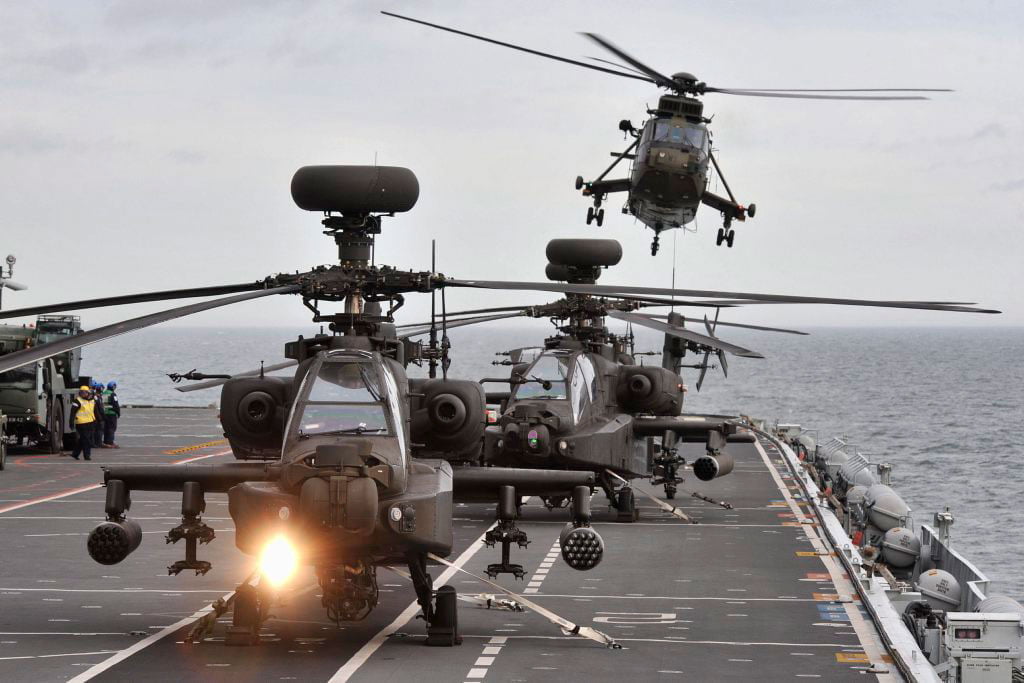
Even the Chief of the British Army recently criticised its dire state. He is now expected to step down, with rumours of a split between him and the Chief of the Armed Forces, Admiral Tony Radakin, a “spendthrift” who seduced Boris with plans for snazzy new flagships and an ‘Indo-Pacific tilt’.
The constantly shrinking military budget is an inevitable consequence of Britain’s economic decline. But it is exacerbated by the outsized ambitions of the military establishment, who dream of seeing Little Britain – a senile, third-rate power – once again ruling the waves.
Instead of bringing the military down to size, cuts have been tailored to preserve the appearance of a formidable Armed Forces, while skimping on less impressive things like making sure the Army is well-equipped.
For example, most units have been retained, but hollowed out, leaving more generals than tanks, and almost more admirals than ships.
Now it is facing the consequences. Penniless and needing to fix everything at the same time, the beleaguered British lion is entering a period of imperialist tensions and proxy wars, armed with a rusty rifle liable to explode in its face.
Rank and file
Under the cracking surface seethes the rank and file. Instead of fighting imperialist wars abroad, soldiers have increasingly been used at home to plug the gaps in the creaky, dilapidated apparatus of the British state.
They are often as underpaid as the public sector workers they replace, facing the same attacks on pay and conditions – with the exception that they haven’t got a union with which to defend themselves. Some are even turning to food banks.
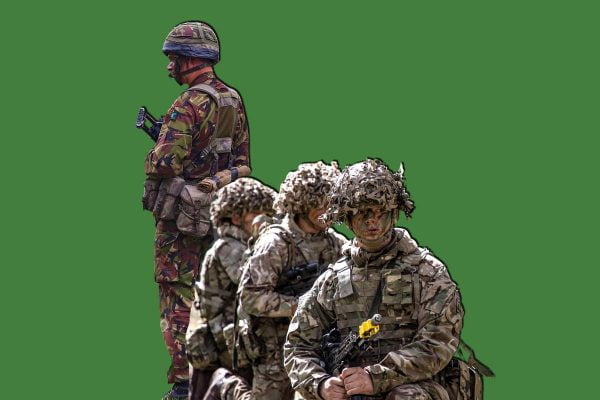
As a result, morale has fallen to its lowest recorded level, with only 29% of soldiers satisfied with pay, and 11% reporting high morale.
Unsurprisingly, this has provoked an exodus of recruits so severe that the MoD are re-enlisting those sacked for theft or brawling.
Subjected to the same intolerable crisis as the rest of the working class, the rank and file would be extremely unreliable if called in to defend British capitalism – whether in a war against a foreign power, or at home in the class struggle.
Plan of production
Instead of solving the crises which threaten our civilisation, the imperialist powers squander the immense fruits of modern science and industry on elaborate means of slaughter. The entire military-industrial complex brings nothing but waste and destruction for humanity – alongside handsome profits for the capitalists.
Under a rational, democratic plan of production, the cutting-edge technology, expertise, and facilities currently in the hands of the defence monopolies could be directed towards solving problems in fields like healthcare, green energy, and sustainable infrastructure.
The workers of Lucas Aerospace showed this was possible in the 1970s, when they drew up a plan of socially useful production, transforming warplanes into wind-turbines and kidney dialysis machines.
Rather than dying for the profits and prestige of imperialist parasites, soldiers should join the working class in the revolutionary struggle to change society, transforming imperialist warfare into class war.

